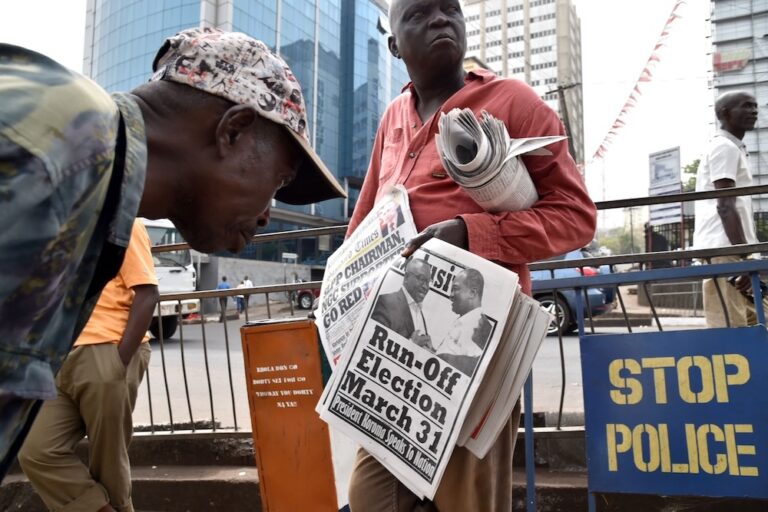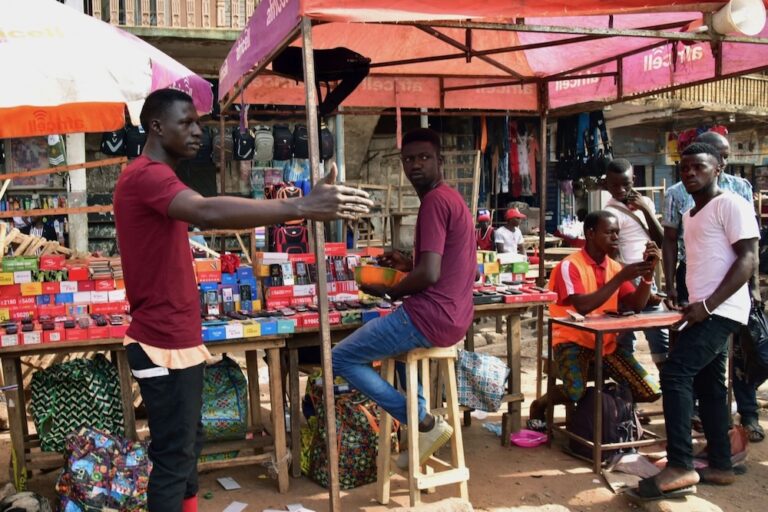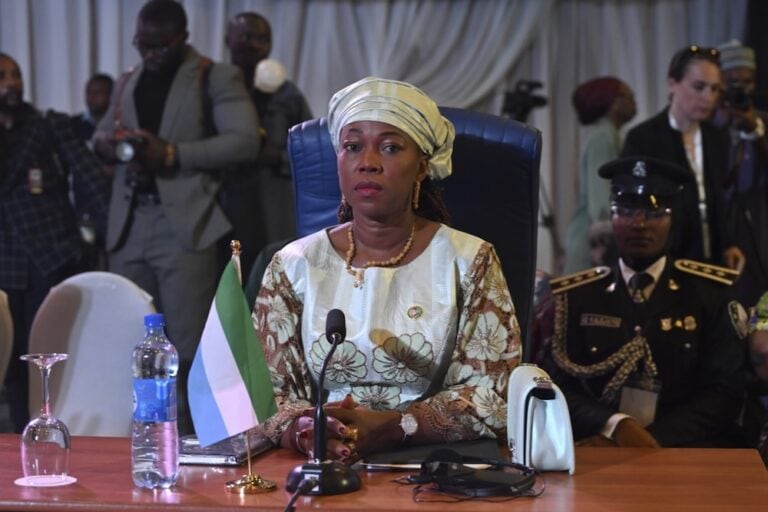IPI urges the government to ensure libel laws are in line with media freedom standards.
(IPI/IFEX) – VIENNA, 11 November 2009: Sierra Leone’s Supreme Court on Tuesday threw out a case for the repeal of criminal and seditious libel brought by the country’s national journalists’ association in February 2008, ruling that the provisions are in line with the country’s 1991 constitution and that “journalists are under no imminent threat.”
The Sierra Leone Association of Journalists (SLAJ) had been fighting for the repeal of provisions in the 1965 Public Order Act which stipulate prison terms for journalists found guilty of libel. The association argues that this is in contradiction with the constitutional guarantee of free speech.
“The International Press Institute (IPI) is dismayed to learn of the court’s decision to maintain criminal libel laws,” said IPI Director David Dadge. “Such laws are outdated, disproportionate, and are too easily and often used to intimidate journalists. We call on the Sierra Leone government to repeal these laws and ensure that journalists are allowed to practise their profession without fear of imprisonment.”
SLAJ Secretary-General Mustapha Sesay told IPI by telephone that it was unclear what steps the journalists’ association would now take. “We will consult as a body, with everyone, at the end of this month at the annual general meeting, and decide our next step,” he said.
SLAJ, with the support of several regional press freedom groups, filed an action with the Supreme Court in February 2008, challenging the constitutionality of sections 26-33 of the 1965 Public Order Act.
The 1965 Public Order Act stipulates prison terms of one to three years for the malicious publication of “defamatory matter,” while denying truth as a defence.
Further, the Act outlaws the publication of any “false statement, rumour or report” that is “likely to cause fear or alarm,” “bring into disrepute any person who holds an office under the Constitution,” or “which is likely to injure the credit or reputation of Sierra Leone or the Government.”
The accused cannot argue that he or she was unaware that the published material was untrue. Anyone convicted under these provisions could face jail time of up to two years.
Final arguments were presented before the Supreme Court on 9 March 2009. From 15 to 20 June, SLAJ implemented a media blackout on the judiciary in protest at the Supreme Court’s failure to rule on the case within the constitutionally-mandated time limit of three months.
In July, the media blackout was declared indefinite, and SLAJ President Umaru Fofana began his own individual protest, refusing to cut his hair until the court gave a ruling.
In August and October of this year, SLAJ petitioned Sierra Leone President Ernest Bai Koroma and the Sierra Leone official Ombudsman, respectively, to intervene and ensure that the Supreme Court gave a ruling as soon as possible.


